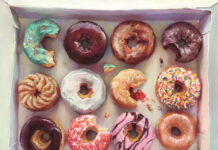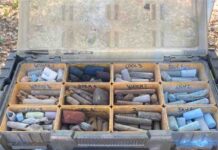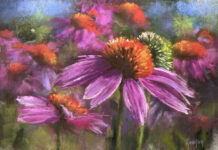It’s question Friday!! This is the day I ask a Pastel Today Advisory Board member the current question which is….. Do you have a favourite pastel hack—a clever trick or shortcut that you’ve introduced into your process?
Today’s response is from Clarence Porter.
“My first Shadow series of paintings began with purchasing a rare roll of Kitty Wallis Museum Grade Archival Sanded Paper. I did not want to waste any of the paper!
I wanted to change my colour palette from my usual colour sets. I rarely did colour studies, but the idea of doing them seemed a perfect fit for this kind of change-up.
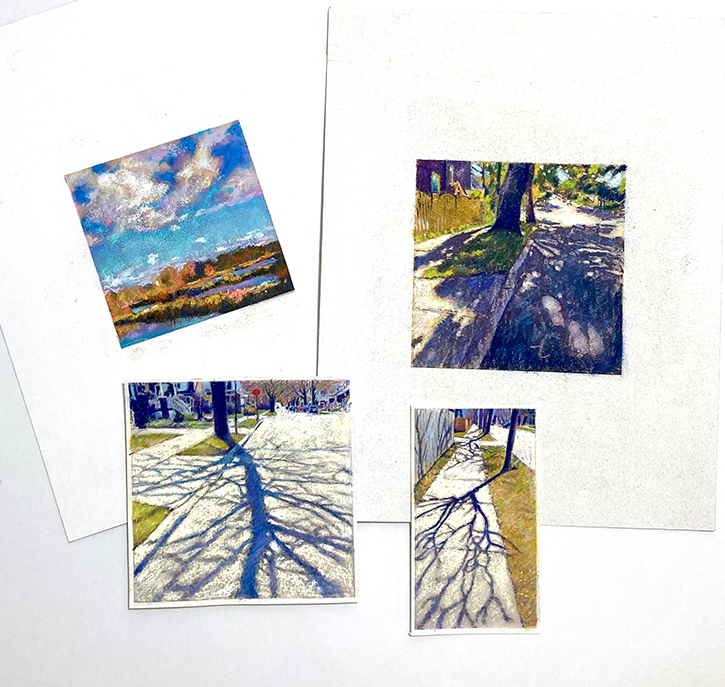
I then did detailed dark value underpaintings. Using a dark blue NuPastel, I carefully did a wash with SpectraFix. (I learned this from artist Jessica Masters and it seemed to work best on the Wallis paper.)
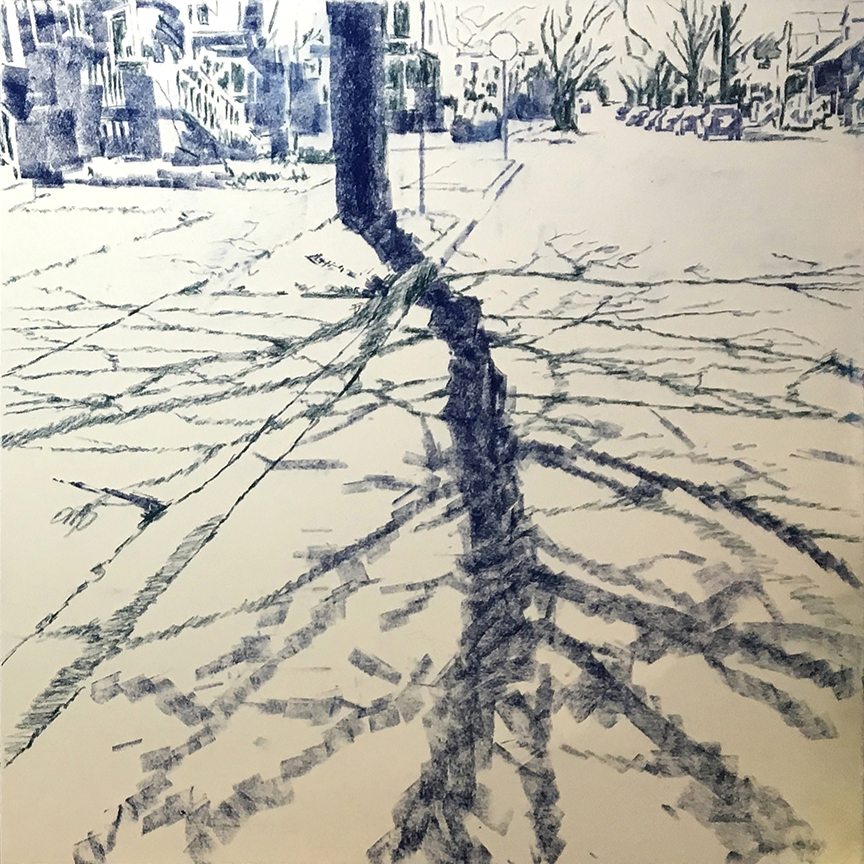
I took photos of the blue underpaintings and then printed out four-inch-high colour versions on card stock. To these copies, I applied clear gesso to give them a bit of grit. After letting the gesso dry, I began doing tiny colour studies using NuPastels and pastel pencils.
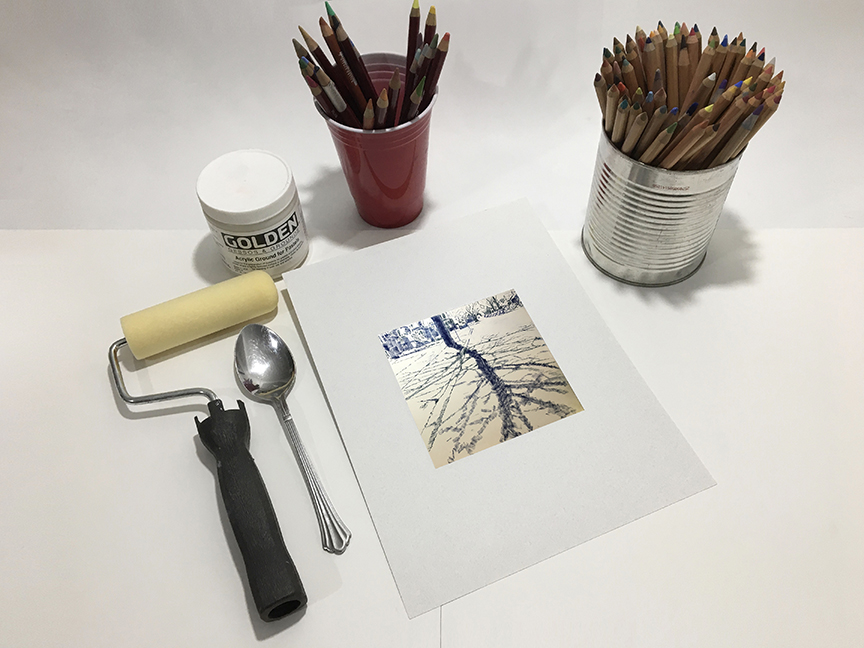
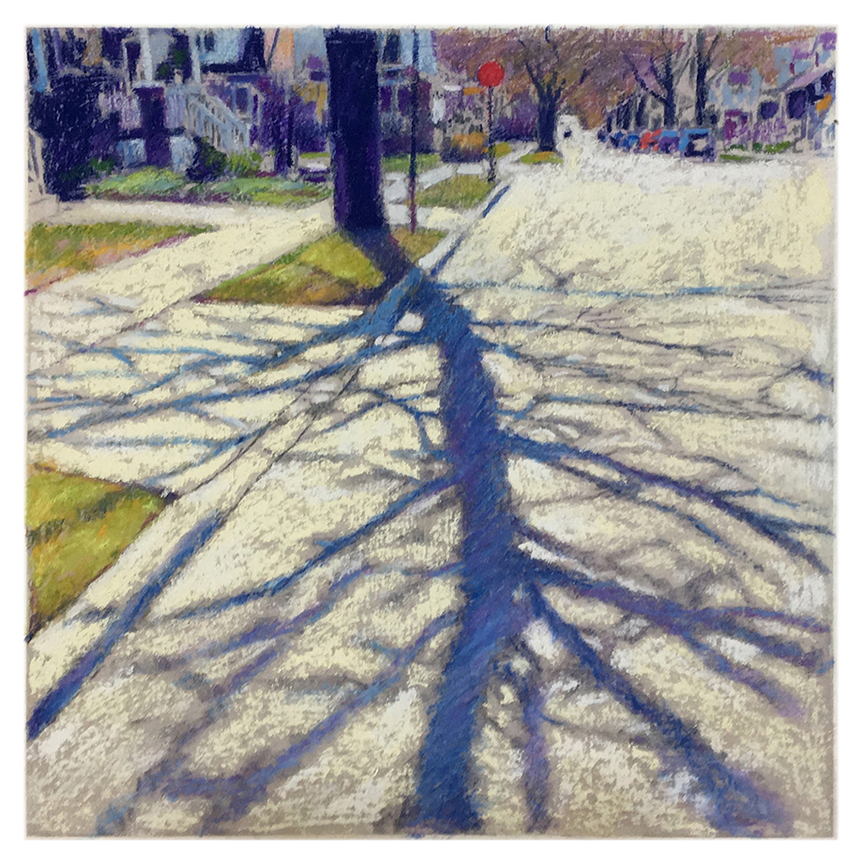
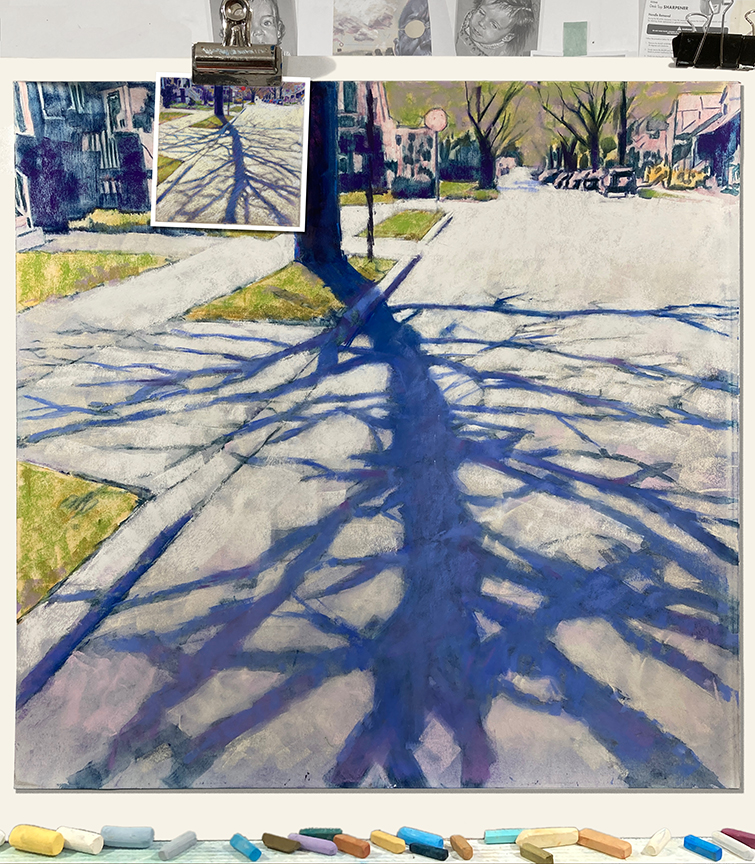
The colour studies eliminated colour concerns when it came time to work on the actual paintings and helped me use my pastels more confidently. Having proportionately-correct colour studies made it easy to add or subtract intensities of colours or make value shifts on the fly, without worry.
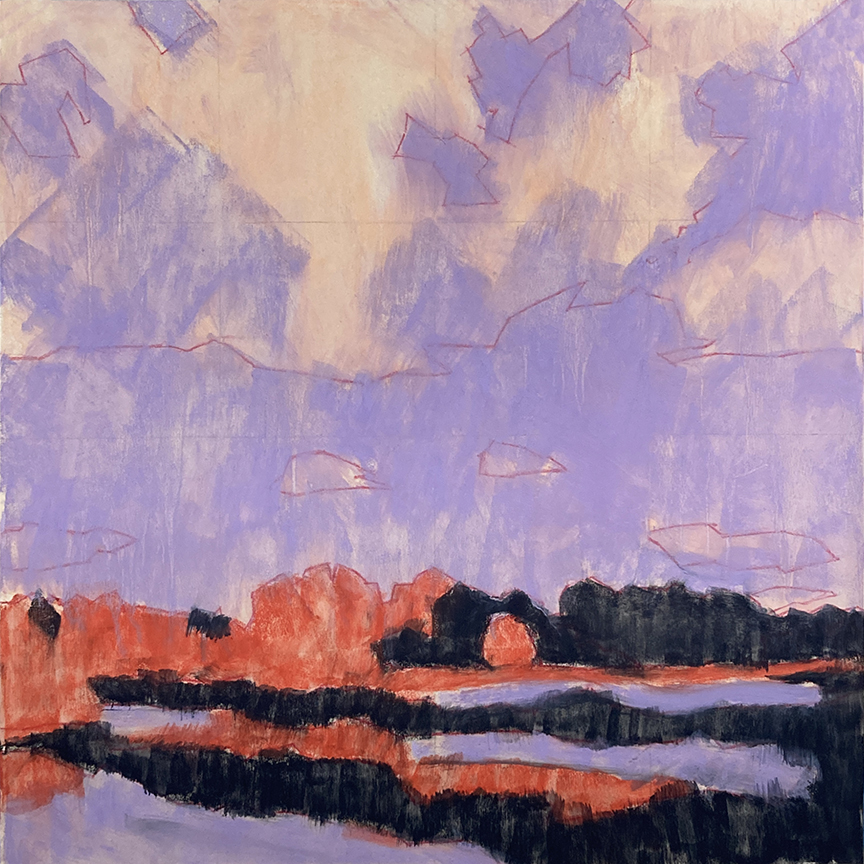
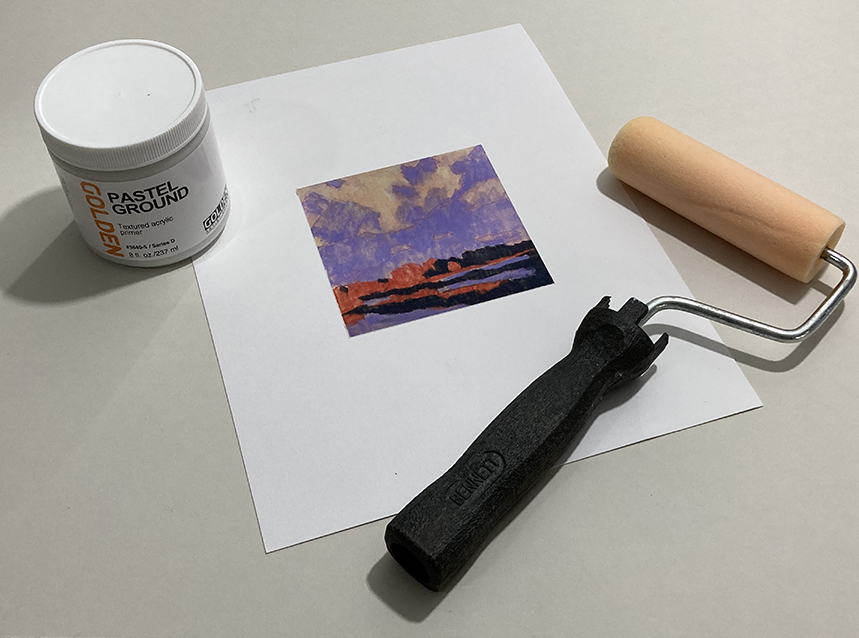
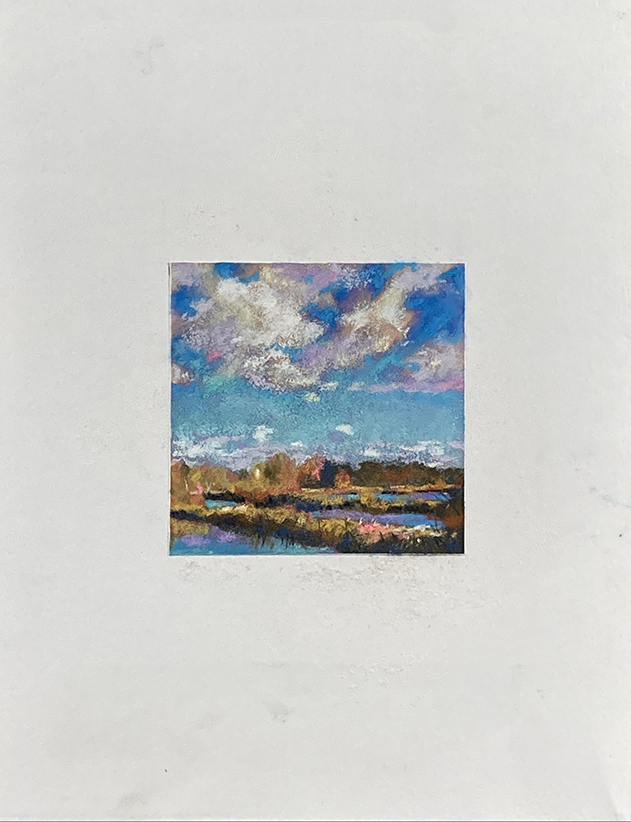
Colour studies are not a new idea but using this particular colour study hack gets me much closer to what I envision, much more quickly.
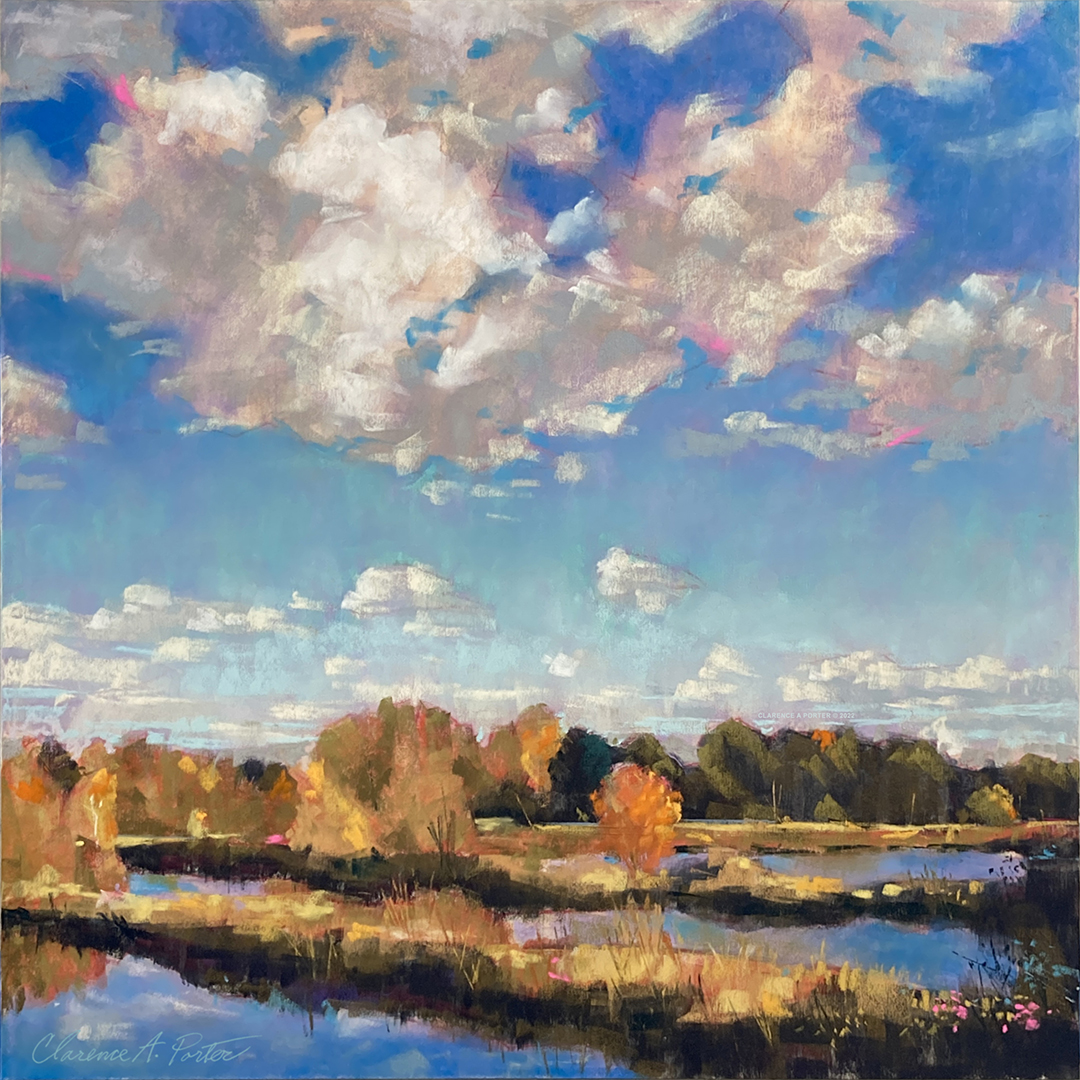
It was a great experience and it helped me move that series of eight paintings along with more confidence. I still do colour studies that way today.”
Thanks so much for sharing this pastel hack, Clarence!
Isn’t that the coolest tip? Will you put this pastel hack to good use?
____________________________________________________________________
The Pastel Society of Southern California’s recent exhibition is now online!
Need some inspiration? You’ll find lots of it in the PSSC online show!
I’m enamoured by the first place painting by ShiLei He.
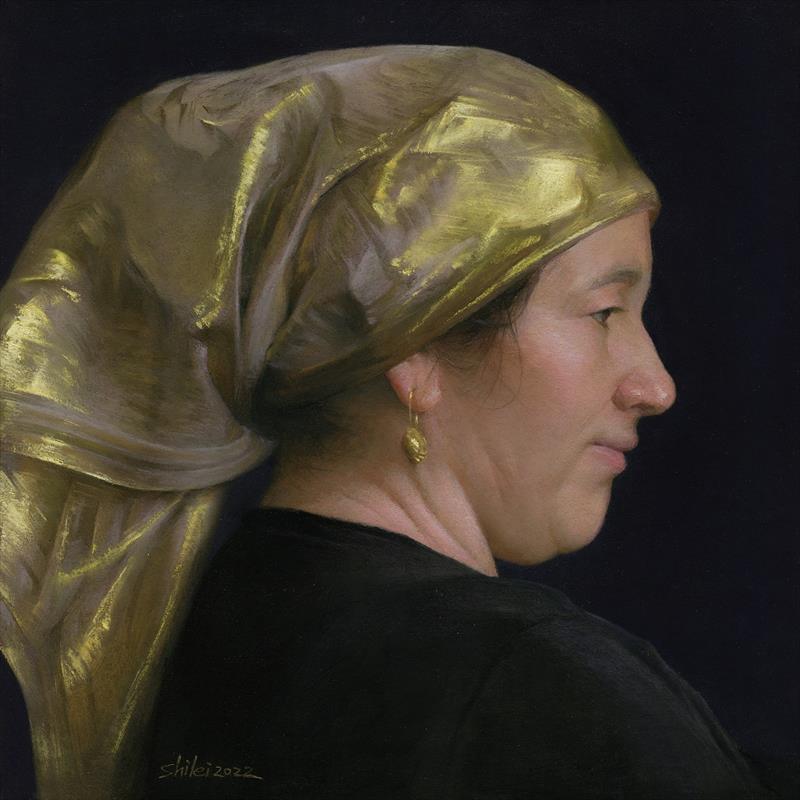
There’s much to enjoy, discover, and learn here: the fabric – you can sense exactly what it feels like; the resigned (?) look on this woman’s face; the believability of the three-dimensionality and volume of this face; the wisps of hair; the texture of her skin. I feel I’m in an intimate space with her and that any minute now, she’ll turn to look at me and perhaps, say something.
And that’s it for this time!
Gail

